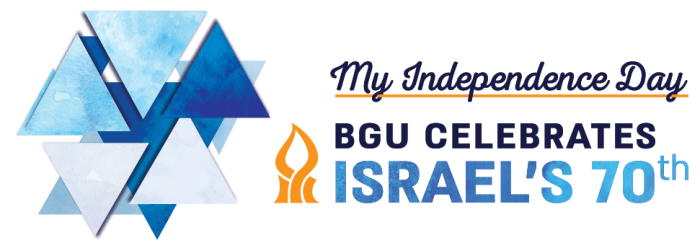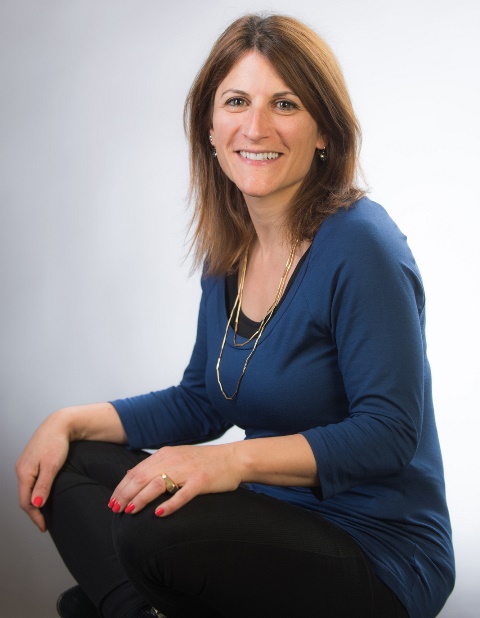
Dr. Naama Atzaba-Poria
Department of Psychology

When I was asked to write about my personal independence, I pondered the fundamental question: what is independence? According to the Even-Shoshan dictionary, independence is "standing on one's own, non-dependence on others, autonomy". I asked myself can a person be independent according to this definition? Could I, being a faculty member, a psychologist, a mother and a wife, all demanding roles, with many responsibilities and rules, be independent at all? Well, interestingly, my sense of independence was born during my military service.
During my military service, I was a teaching officer. I taught soldiers who couldn't read and write or do basic arithmetic. These were young people who were always dependent on others to help them. I remember I was shocked when I found out that in Israel, a country with compulsory education, there are people who reach the age of 18 without a basic education. Even more disturbing was seeing their lack of self-confidence and their low self-image because of their lack of basic education. Over time, as I worked with them more, I realized that these soldiers came from hard-up families, which can be called "families in crisis." I realized then, how difficult it is to change a grown up person and how important it is to focus on working with children in early childhood, when it is still possible to generate significant changes. This was an enlightening moment. I then decided to go to university and study psychology, focusing on developmental psychology in my graduate studies. This was the beginning of my professional independence.
Today, 25 years after that decision, I'm an expert developmental psychologist and the head of the developmental psychology track at BGU. After many years of studies, including a PhD at the University of Surrey in Britain and professional training at Barzilai Medical Center in Ashkelon and Soroka University Medical Center here in Beer-Sheva, I have reached professional independence. I stand on my own and can lead and innovate in my fields of expertise. I combine research, teaching and therapy, and this combination is the basis for my professional independence. I have a long partnership with the Preschool Psychiatric Unit at Soroka, which enables and encourages research alongside treatment.
Along with the sense of satisfaction and the joy of being able to combine research and clinical practice, there is the heavy workload because of the constant demands of both areas. This is a situation that would seem to hurt my independence, but it only seems so, because my workload is the consequence of doing important work by choice, clarifies and emphasizes the essence of the things with which I deal and the faith in their significance. This is the deepest expression of independence.
In my lab (Child Development and Family Relationships Lab) I examine the social and emotional development of young children in families experiencing situations of stress and difficulties arising from child characteristics (such as children with eating problems, premature babies) and environmental factors (families from different cultures, families living in stressful areas such as close to the border with Gaza), while emphasizing parent-child relationships as resilience factors. The knowledge gained in the lab is essential to developing appropriate interventions that will lead to more independence among these populations.
I see in knowledge the foundation stone to independence. Thanks to the knowledge that I've acquired over the years, I have intellectual independence and this is something I try to instill in my students. In my clinical work, I frequently encounter parents and children who lack independence. They feel trapped in dependency and a paralyzing reality. Three years ago, when I returned from a sabbatical in the United States, I've developed the BGU reflective parenting program, a program that aims to help parents better understand their children. During the meetings, parents learn new ways of understanding the relationship between emotions, thoughts and behavior, and develop skills for assessing the internal worlds of children and themselves. This capability is called parenting reflectivity or mentalizing. The stopping, observation and thinking, enhances parental regulation and as such, contribute to reducing anger and other situations which sometimes cause a feeling of alienation and distance between parents and their children. In this program, generously supported by Judge Leon Kaplan of the U.S., I train professionals who can then teach groups of parents throughout the country.
Having said all this, there is also the personal independence within the family life. The combination of motherhood and career is a cornerstone of personal independence for me. I have the privilege to be the mother of three children and at the same time be an academic and therapist. The ability to combine motherhood and a career is possible thanks to the full partnership I have with my partner caring for our children. Freud said, "Love and work are the cornerstones of our humanness." On our 70th Independence Day, I wish for women and men to succeed in realizing the connection between self-fulfillment in motherhood and fatherhood and between creativity and fulfillment in work and study.
Read about other BGU faculty, alumni and honorees describing significant moments in their lives, linking them to the nation's history >>>>